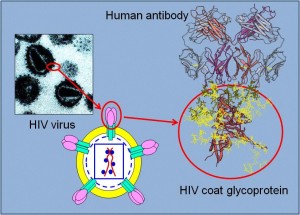
Tuberculosis bacteria
A new study of the potential tuberculosis vaccine, modified Vaccinia Ankara virus expressing antigen 85A (MVA85A), has failed in a study of 3000 infants in South Africa. Scientists had hoped it would help improve protection against the infection when used with the current vaccination (BCG). The study was a double-blind, randomised, placebo-controlled trial of healthy infants (aged 4—6 months). The infants were randomly administered BCG with either MVA85A or a placebo of Candida skin test antigen then examined every 3 months for up to 3 years. During the course of the trial, the rates of serious or systemic infection from tuberculosis were similar for the group that received the new vaccine enhancer compared to those given the placebo. The researchers did note that the MVA85A does appear to be safe and that no adverse effects were cause by the antigen itself. This was the first efficacy trial of a tuberculosis vaccine in infants in more than 45 years. More details here at The Lancet [subscription required].
